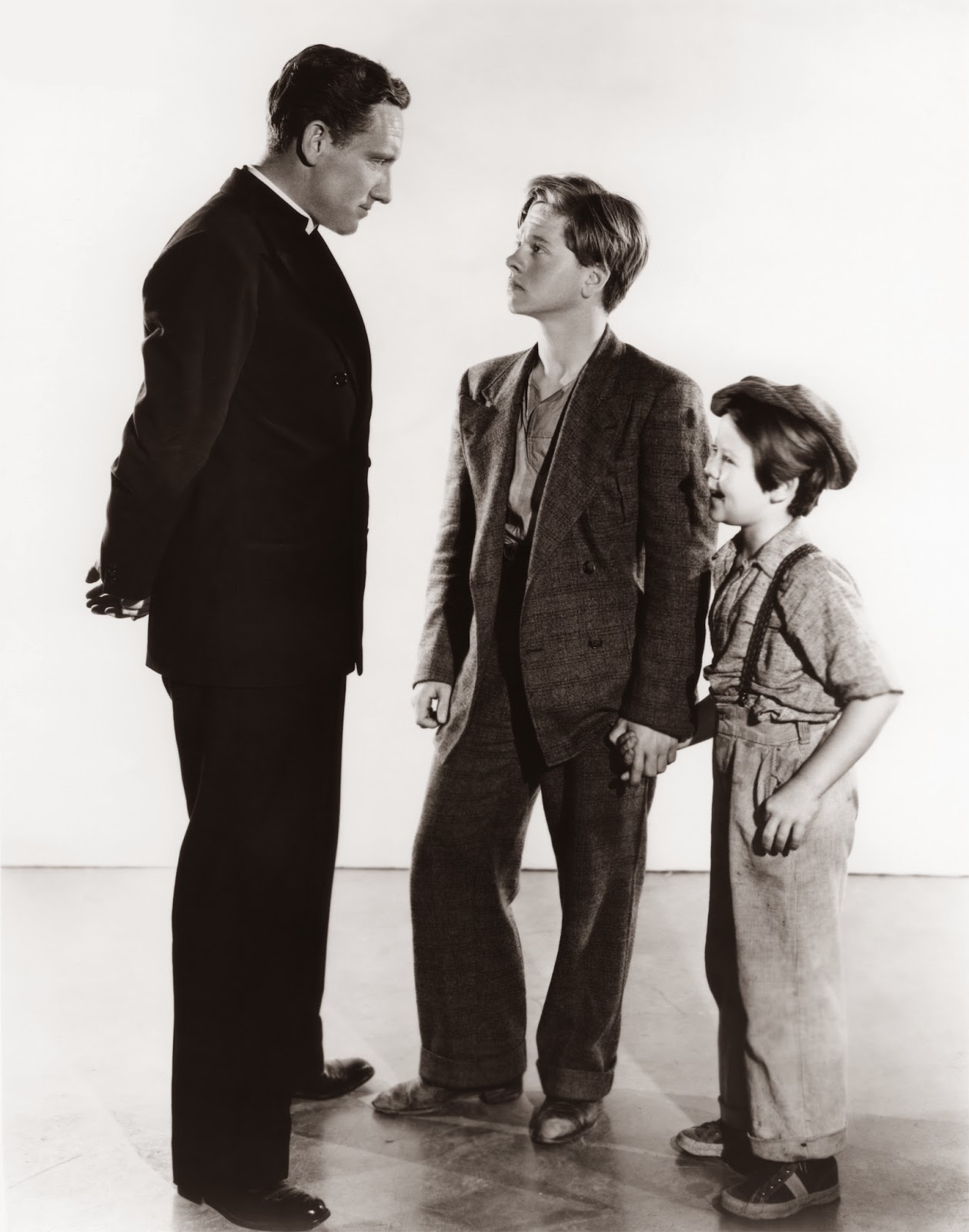Boys Town (1938)
.jpg)
Metro-Goldwyn-Mayer
Director: Norman Taurog
Starring: Spencer Tracy, Mickey Rooney
Honors:
There are people that want desperately to help others and will dedicate
their lives to the betterment of those in need. Boys Town celebrates one such man. Inspired by founder of the real
life boys’ orphanage of Boys Town comes the tale of how a single person worked
tirelessly at serving others. A sentimental tale about the goodness of men, Boys Town stars Spence Tracy and Mickey
Rooney, aiding Tracy to achieving his second consecutive Oscar for Best Actor.
Boys Town is a dramatization
of the founding of Boys Town, the orphanage for juvenile boys in Nebraska, and
its pious leader who believes there is no such thing as a bad boy in the world.
The humble and very sacrificial Father Flanagan (Spencer Tracy) is inspired to
make a home for troubled boys, guiding these young individuals into the right
direction in life before the evils of the world can corrupt there ways. Ever
taking risks and with the charity of others Flanagan is able to found Boys
Town, and lead it as a respected institution for growing boys.
 |
| Flanagan and Whitey butt heads as Pee Wee watches on. |
A loosely inspired story of Boys Town is the muse of this tale as it
becomes more of a semimetal film about a boy coming to terms with knowledge of what
direction in life he must take. The feature is a fine picture which consists of
large number of young actors in this moral play. Spencer Tracy’s Father
Flanangan is the central character to the entire story, but it is Mickey Rooney
whose performance of Whitey that becomes the focus of the real drama. The central
core of the story is the founding of the institution of Boys Town and
overcoming the deep finical trouble that hindered its existence. In all this somehow
that focus turns to the idea that Father Flanagan finding his white whale in
Whitey Marsh as he attempts to manifest that there is no such thing as a bad
boy.
 |
| Little Pee Wee becomes a major part of the plot. |
Tracy’s stoic and guiding light as Father Flanagan would be the driving
force of the overall picture. His quite, yet stern demeanor would earn him his
second consecutive Oscar for Best Actor, the first in Academy Award history for
that honor. In his acceptance speech Tracy dedicated the award to Father
Flanagan, which the studio took upon itself, in publicity, to donate the statue
to Boys Town in loving memory of the kind man that inspired the role. However
Tracy still received a duplicate of the statue to keep, because, after all, he
did earn it.
 |
| As Father Flanagan, Tracy wins his second Academy Award. |
Not as recognizable is his supporting role is Henry Hull as the
charitable pawn salesman that helps back Father Flanagan in his early days of
Boys Town. Hull would be best recognized by his portrayal of the title
character in the Universal horror Werewolf
in London.
A successful motion picture at the box office Boys Town would grow to become a somewhat sentimental classic for
some. In 1941 MGM would try their luck at a sequel bringing bake Tracy and
Rooney as Father Flanagan and Whitey in Men
of Boys Town. This film takes on a darker tone as it delves into the world
of homelessness and the condition of the boys reform school. The sequel would
be far less memorable despite being a large draw for 1941.
Contemporary audience watch Boys
Town for its over-romanticizing of life as a young boy growing up, learning
to co-exist with others, and coming to make choices that would set themselves
down important paths in life. Spencer Tracy becomes the most notable part of
the picture for becoming the first consecutive winner of an Academy Award for
Best Actor. Ultimately the film is a tribute to those that want to make a
difference and will do everything in their power to make the world a better
place for those that are dealt a worse hand in life, believing every person
deserves a good chance.

.jpg)
Comments
Post a Comment